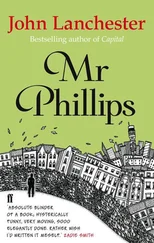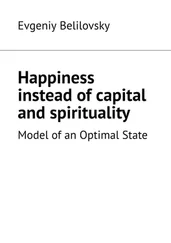‘Did you see that film The War of the Worlds , starring Tom Cruise? The original story was set here. It is by Wells, a less intelligent English version of Jules Verne. This is where the Martians landed,’ said the translator.
‘The fight scenes were good,’ said Freddy.
Then they were in woodland again, and then in small windy roads over small but steep hills, and then they were at the training ground, and Freddy began his first day of work as a professional footballer.
There was one bad thing about that morning: Freddy realised that he was going to have to learn English much more quickly than he’d thought. Patrick spoke a basic level of English, and he had gone on and on about how Freddy needed to learn the language, but Freddy had privately thought his father was making too much of this – he could read a team-sheet as well as anyone and knew how many different nationalities were in the squad, they must be very used to people not speaking English. But he now saw this worked the other way, and precisely because players came from everywhere they needed to communicate with a shared tongue. The manager was very nice about it but also firm: ‘How are the language lessons going?’ was the first thing he said. The star striker, who was francophone, had been incredibly friendly but he had said, ‘We won’t speak French at work after this week.’ So Freddy was going to have to concentrate and work hard. But – he knew this in advance but it was still hard to believe – since the players only trained in the mornings, up until lunch, there was plenty of time left to get on with his lessons, and the sooner he did that the quicker the time would be free for fun things. So, English.
Apart from that, his first day at training was the best day of his seventeen years and four days on the planet. They had begun with stretches and then a game in which two players stood in the middle of the circle of five others, who tried to keep the ball away from them by passing. It was fun and good technical practice too, but the real buzz for Freddy came when he was sent for his turn in the middle at the same time as the £20 million midfielder, and the two of them set out to intercept the ball. The exciting thing was simply looking across and seeing this world-famous player and seeing that he was human, real, right there next to him, and that this was now to be Freddy’s world from here on.
After the two-in-the-middle game, there was an hour and a half of fitness training: a warm-up run, then some interval running, then shuttle sprints. Freddy had spent the last two years working to the personalised diet and fitness programme sent to him by the club, so it was fine. He was used to being the quickest player anywhere he ran, so it was startling to be in the middle of the pack or a little behind – but in any case he was still growing, and Freddy knew very well that one of the bases of his game was that he could run as quickly with the ball as he could without it.
Once they’d finished the running they did some skills work, and then they finished off with a game whose name was so odd that Freddy had to ask the translator to tell him it three times: cochon au milieu , he kept saying: pig in the middle. Freddy took his turn running around trying to tag the others and they took their turn in the middle too, grown men running and skipping and dodging and laughing, the oldest of them in his early thirties putting as much gusto into it as the youngest, Freddy himself, panting and giggling at the same time. And then the coach blew his whistle and training was over. The players headed for the changing room, and for their busy afternoons of shopping and gambling and meeting their agents and sex.
Petunia sat waiting to see the doctor – no, not just the doctor, but the consultant. She was on the eighteenth floor of a tower block in South-East London and so far no aspect of her day had gone well. She was feeling weak and dizzy most of the time, and there was also a new and horrible symptom – horrible because so disconcerting – that her vision was somehow being affected, as if a shadow or blur were intruding on the left side of her eyesight. It was such a strange sensation that at times she thought she might be imagining it and at other times she was sure she wasn’t. Going out of the house at all was something of a challenge, so getting all the way across here hadn’t been possible without taking a minicab, which was not something she liked to do – it was one of the subjects about which she agreed with Albert, he who had never, not once in his life, taken a taxi. Part of the trouble was that she would have to take a minicab back and although there would be a freephone in the hospital from which she could order one Petunia knew that this was certain to involve quite a lot of anxious waiting, wondering if the cab had been stolen by someone else, struggling to find somewhere to sit, and all while she was dreading the thought of another bad turn.
When she got there, having tried to be stoical, it was much worse than she had imagined, because the skyscraper forecourt of the hospital suffered from a wind-tunnel effect. There was a genuine gale-force wind raging across the piazza, carrying near-horizontal rain into the chaos of ambulances and taxis and patients and visitors and wheelchairs. Every other person seemed to have a clear idea of where they were going and of how to get there and a keen sense of their own rightness about the need to get there in a hurry, which was daunting for Petunia who had none of those things except an awareness that she needed to find the lifts and get to the eighteenth floor.
The first lift had a huge crowd outside it. Petunia couldn’t get in. For the second lift, she was closer to the front of the queue, but some people overtook and got in first and then a man with a wheelchair and a leg in plaster said ‘Excuse me’ and went in front of her and then there was no more room. She did manage to get in the third lift, because a nurse took pity on her and created a space by holding her arm in front of the door so Petunia could slip past. The nurse smiled at Petunia as the lift began to go up, while four very tall young male doctors talked about a rugby game they had coming up that weekend.
She got out at the eighteenth floor and queued for five minutes to tell the woman on the desk that she had arrived. The woman asked her name and then typed it into a computer and then without saying anything wrote on a card and gave it to Petunia, who gathered from that that she was supposed to sit and wait until her name was called. So Petunia went and sat on a plastic chair in the waiting room. The chair was bright orange with a hole in the back and its seat was canted forward so that Petunia was constantly having to shuffle her bottom and adjust her position in order not to slip off. On the five seats next to Petunia, an Asian family of five sat waiting, a grandmother and her daughter and son-in-law and her two grandchildren. They had brought books, video game thingies for the children, magazines, and a plastic bag of snacks; their equipment for the wait and their obvious experience at waiting made Petunia feel very amateurish.
After about an hour, Petunia summoned up the nerve to go and ask if she had been forgotten. No one ever admitted that they had actually forgotten you, but the fact was that reminding people of your existence did sometimes have an effect. The woman at the counter looked up from her computer very briefly and looked down again before answering.
‘There’s a queuing system,’ she said.
‘Only my appointment was for one thirty and it’s now a quarter to three.’
‘All Dr Watson’s clinic appointments are for one thirty,’ said the woman.
‘Oh well, that’s all right then,’ said Petunia. The woman looked up at her briefly again, and Petunia went and sat back down with her heart beating harder and more quickly.
Читать дальше












